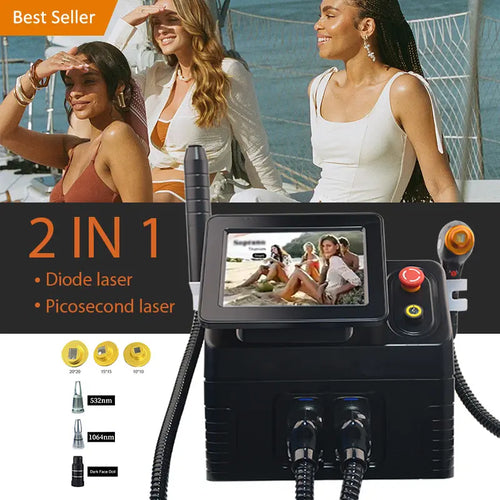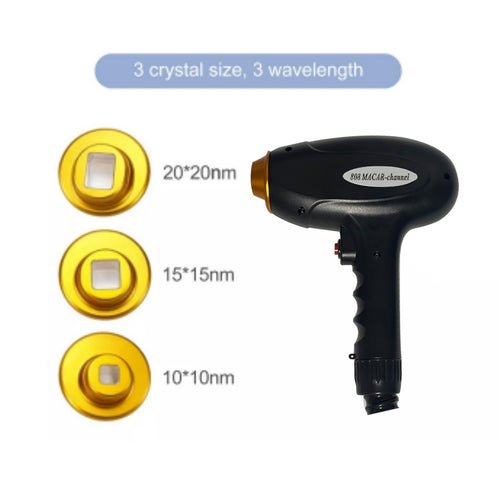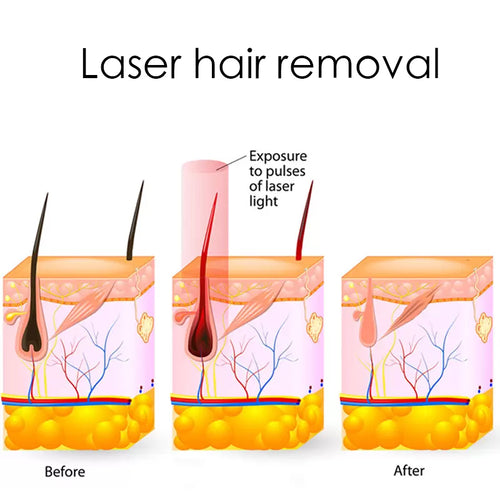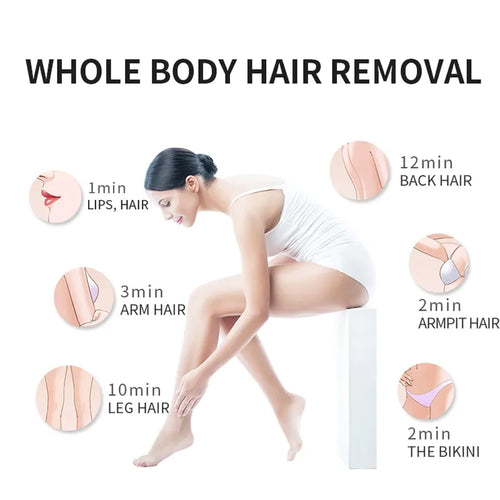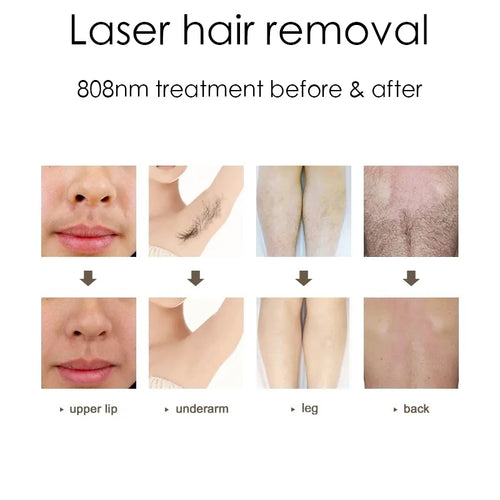The quest for smoother, hairless skin has driven continual advancements in the beauty industry. Among the various solutions, laser hair removal has risen as a popular choice for many individuals seeking long-term hair reduction. However, as technology evolves, the availability of at-home laser hair removal devices has brought this high-tech service within arm's reach of the consumer. But, are these personal gadgets as effective as their professional counterparts?
In this comprehensive examination of laser hair removal devices, we'll dissect the concept of efficacy, demystify how these machines work, consider the experiences of actual users, and provide the insights you need to make an informed choice.
Understanding Laser Hair Removal
Before addressing effectiveness, it's crucial to grasp the fundamental principles of laser hair removal. This method targets hair follicles with light energy, leading to thermal damage that inhibits future hair growth.
How Does It Work?
The process, scientifically known as 'selective photothermolysis,' involves the melanin in the hair follicle absorbing the light, converting it into heat energy. This heat disables the follicle without affecting the surrounding skin, preventing hair re-growth. As such, the laser device you choose should suit your skin type to achieve optimal results.
Effectiveness of Laser Hair Removal Devices
The primary concern for individuals investing in a laser hair removal device is whether it's worth the cost. Fortunately, the answer isn't as straightforward as a simple yes or no. Several factors influence the efficacy of these devices, including:
Skin Tone and Hair Color
The ideal candidate for laser hair removal has light skin and dark hair. The greater the contrast between your skin tone and hair color, the better the absorption of light by melanin in the follicle. As such, it's essential to consider your skin tone when selecting a device.
Device Quality
Not all laser hair removal devices are created equal. Some may be more powerful, have better cooling systems, or offer additional features that improve effectiveness. It's crucial to do your research and invest in a high-quality device for optimal results.
User Experiences
While laser hair removal technology has advanced significantly in recent years, user experiences can still vary. Factors such as pain tolerance and hormonal changes can affect the efficacy of the treatment. Some may experience minimal discomfort and see significant results, while others may require multiple sessions for noticeable changes.
Long-Term Results
While laser hair removal offers long-lasting results, it's essential to note that it's not a permanent solution. Hair follicles can repair themselves over time, potentially leading to regrowth in treated areas. However, with proper maintenance and occasional touch-up sessions, the results can last for years.
Safety Precautions
Professional vs. At-Home Treatments
Professional laser treatments are offered in clinical settings with highly trained technicians using medical-grade equipment, offering comprehensive hair removal plans. In contrast, at-home devices are designed for consumer use, catering to smaller treatment areas and requiring multiple sessions for visible results.
The Effectiveness of Laser Hair Removal Devices
One of the most critical measures of device success is its efficacy in producing long-term hair reduction. Many at-home devices promise up to 90% reduction after specific usage periods.
Efficacy Across Skin Types and Hair Colors
Traditionally, laser treatments are most effective on individuals with lighter skin and coarser, darker hair due to the higher contrast in color. However, newer devices are designed to accommodate a wider range of skin tones and hair colors, albeit with varying results.
Long-Term Results and Maintenance
Permanent hair removal is often a misnomer, as the process mostly results in hair reduction. Regular top-up sessions may be necessary to maintain a hairless appearance, especially for at-home devices with less power than professional ones.
Factors Influencing Effectiveness
Several variables can influence how well a laser hair removal device works. Awareness of these factors is key to managing expectations and achieving optimal results.
Skin Sensitivity and Pain Tolerance
The effectiveness of a device can be compromised if users fail to use the required energy levels due to pain or discomfort. Higher pain tolerance can lead to better treatment, but it is important to balance this with skin health and comfort.
Device Quality and Technology
The strength of the laser or light emitted by a device, often measured in Joules, determines its power and, consequently, its efficacy. Additionally, the type of technology used, such as IPL (intense pulsed light) or actual lasers, can affect the treatment's success.
Proper Usage and Maintenance Tips
Consistent use at the correct intervals is paramount for achieving desired results. Moreover, maintaining the device by replacing cartridges or ensuring bulbs are functioning efficiently can influence its longevity and subsequent effectiveness.
User Experiences and Reviews
Personal accounts can offer candid insights into the efficacy of laser hair removal devices. Reading various reviews can help you form realistic expectations based on others' experiences.
Compilation of User Feedback and Testimonials
Collating feedback from diverse users can provide a well-rounded perspective on the performance and effectiveness of different devices. Assessing user photos and narratives for similarities in treatment areas and hair type can be valuable.
Comparative Analysis
In the crowded at-home beauty device market, it's essential to discern which laser hair removal products are most effective.
Comparison Between Different Laser Hair Removal Devices
This section will present a detailed analysis of leading at-home laser hair removal devices, including their respective features, performance, and outcomes.
Pros and Cons of Popular Brands
Weighing the strengths and limitations of various brands will help you select a device aligned with your hair removal needs and expectations.
Conclusion
Ultimately, laser hair removal devices can be effective for many individuals when used correctly and consistently. The transition from professional to at-home treatments has democratized access to this technology, but it also highlights the need for informed decision-making.
Exploring the world of laser hair removal requires patience and an understanding that results can vary. By considering all the factors discussed and engaging with user experiences, you can enhance your chances of benefiting from the efficacy of these devices. Remember, the quest for smooth, hair-free skin is a personal one, and the right laser hair removal tool can be a trusted companion in your beauty routine.


